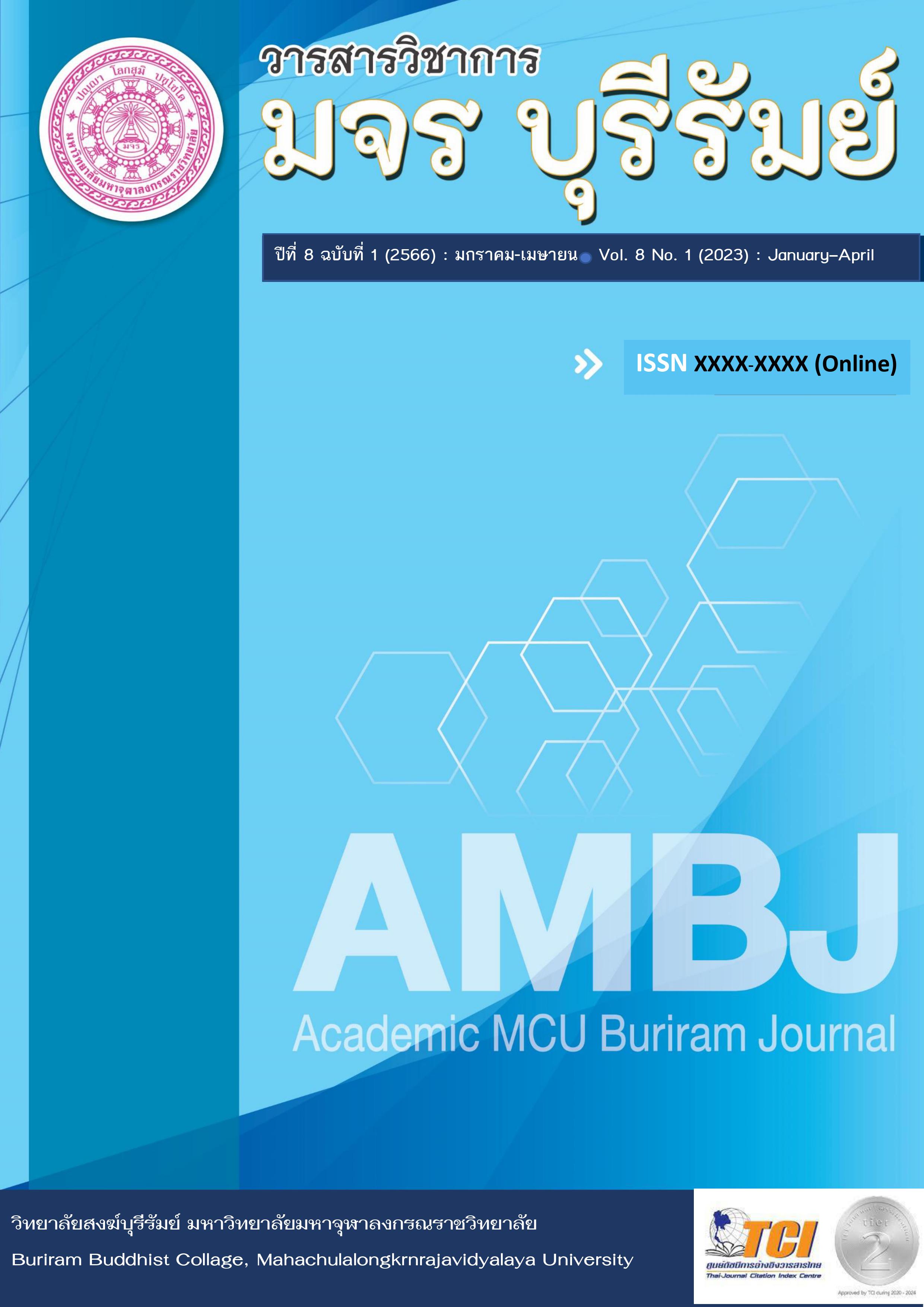Guidelines for Preserving the Mind before Death in Theravada Buddhism
Keywords:
Pre-death Mind, Theravada Buddhism, Healing MethodAbstract
The purpose of this research were: 1) to study the importance of mind towards life before death in Theravada Buddhism, 2) to study methods for pre-death mind treatment in Theravada Buddhism, and 3) to propose guidelines for pre-death mind treatment in social situations, current the study was conducted by means of documentary research from various sources, including the Tripitaka, commentaries, books, textbooks, documents, academic publications, research papers, thesis, and online sources. Descriptive data analysis was performed to present information and suggestions.
The research results found that:
1. The importance of the mind to life before death the mind that is unwholesome consciousness is Lophamulacit (original mind accompanied greedy), Thosamulacit (original mind accompanied angry), and Mihamulacit (original mind accompanied lost). It is a bad mind. And a wholesome mind is a good mind. There will be mental suffering as a result of karma. It is a karma that arises because the mind has ignorance as the basic defilement. Contact is the beginning of karma. When doing bad or good deeds, it will result in the result of the succession of the world and the succession of the nation will affect the afterlife, there is a misfortune and happiness is where to go
2. The way to cure the mind before death found that principle of merit, Principles of Yonisomanasikarn, principle of Triple Gem able to maintain a good mind.
3. Appropriate methods for pre-death mind treatment at present include solitude, giving charity, looking for the good, being kind to them, considering that all beings have their own karma, consider anger to be passion, consider that the mind arises and ceases all the time, considering that there are no beings, persons, selves, we, and people by using the three wisdoms to eliminate delusion, namely: 1) Jintayama-panya (Wisdom arises from thinking), 2) Sutamaya-panya (Wisdom arises from listening), 3) Bhavanayama-panya (Wisdom arises from development), and following the Kusalakammapada 10 (virtues of 10 merits), 3 honest principles namely, Physical action, verbal action, and mental action.
References
พระไพศาล วิสาโล. (2556). การช่วยเหลือผู้ป่วยระยะสุดท้ายด้วยวิธีแบบพุทธ. พิมพ์ครั้งที่ 20. กรุงเทพมหานคร: เครือข่ายพุทธิกา.
พระธรรมปิฎก (ป.อ. ปยุตฺโต). (2539). ระลึกถึงความตายและวิธีปฏิบัติให้ถูกต้องต่อความตาย. กรุงเทพมหานคร: ธรรมสภา.
พุทธชาด แผนสมบุญ, นิรนาท แสนสา และลัดดาวรรณ ณ ระนอง. (2021). ประสบการณ์การเยียวยาจิตผู้ป่วยของพระสงฆ์จิตอาสาคิลานธรรม. Journal of MCU Humanities Revieew, 7(1), 103-120.
มหาวิทยาลัยมหาจุฬาลงกรณราชวิทยาลัย. (2532). อรรถกถาภาษาไทย ฉบับมหาจุฬาอรรถกถา. กรุงเทพมหานคร: โรงพิมพ์มหาจุฬาลงกรณราชวิทยาลัย.
มหาวิทยาลัยมหาจุฬาลงกรณราชวิทยาลัย. (2539). พระไตรปิฎกภาษาไทย ฉบับมหาจุฬาลงกรณราชวิทยาลัย. กรุงเทพมหานคร: โรงพิมพ์มหาจุฬาลงกรณราชวิทยาลัย.
สมเด็จพระพุทธโฆษาจารย์ (ป.อ. ปยุตฺโต). (2559). พจนานุกรมพุทธศาสน์ ฉบับประมวลศัพท์. พิมพ์ครั้งที่ 30. กรุงเทพมหานคร:มูลนิธิการศึกษาเพื่อสันติภาพ.
Downloads
Published
How to Cite
Issue
Section
License
Copyright (c) 2023 Academic MCU Buriram Journal

This work is licensed under a Creative Commons Attribution-NonCommercial-NoDerivatives 4.0 International License.
ทัศนะและความคิดเห็นที่ปรากฏในบทความวารสารฉบับนี้ถือเป็นความรับผิดชอบของผู้เขียนบทความนั้น ไม่ถือเป็นทัศนะและความรับผิดชอบของบรรณาธิการ





